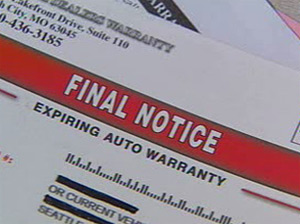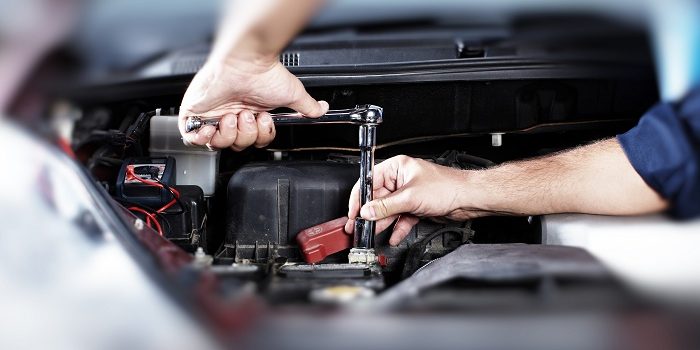
 Auto site Edmunds.com calls it “the toughest sell in the room,” the point when you’re just about done with your car purchase and the finance person asks you the equivalent of “Are you feeling lucky?” It’s the question that precedes a long list of extra protective products and services designed to support you not if, but WHEN something goes badly wrong with your new ride.
Auto site Edmunds.com calls it “the toughest sell in the room,” the point when you’re just about done with your car purchase and the finance person asks you the equivalent of “Are you feeling lucky?” It’s the question that precedes a long list of extra protective products and services designed to support you not if, but WHEN something goes badly wrong with your new ride.
At the center of the sale is the extended warranty, which provides additional coverage for some mechanical problems that may come up after your car’s factory warranty expires.
It sure makes sense, at least when the person on the other side of the desk explains the level of coverage to you. It will hopefully minimize or eliminate a nasty repair bill in the future, and provide you with that most important thing: peace of mind.
So are extended warranties worth it? The established answer seems to be a firm “maybe.” Or perhaps “it depends.” Or more like “probably.” Financial experts say you can be optimistic, forgo the warranty and hope that nothing severe happens, or you can feel good about having its protection, just in case.
How then do you make this decision, especially when you’re being told to sign on the dotted line with little time to think?
- Do your homework. In a perfect world, you should do your warranty research when you’re doing your car research, long before you start walking around the lot. Learn about the different costs, types of coverage and providers. You can always buy a warranty later—sometimes even after your manufacturer warranty expires. It just may cost you more the longer you wait, according to HowStuffWorks.com.
- Estimate how long you’ll keep your car. Though mechanical problems can happen anytime, they do tend to increase as cars get older. If you usually upgrade your car every three years, this might be the length of time for your manufacturer’s warranty so an extended warranty won’t apply. On the other hand, DMV.org suggests that if you’re someone who enjoys a longer relationship with their car, an extended warranty might be a smart idea.
- Consider how much work your car needs. This depends on variables like the condition of your region’s roads and the amount of driving you do on a regular basis. But the more you drive, the more you may need repair service. If you are angling toward a warranty, look for something that covers a lot of contingencies, not just major work. A full coverage warranty, for example, covers more than a powertrain warranty that mainly covers major engine work. Consumer Reports doesn’t necessarily recommend extended warranties as a general practice, but suggests there are circumstances where they can come in handy, such as if the car is a model that’s known to be unreliable.
- Understand the options. Some warranty providers, like Carchex, can offer other useful features including roadside assistance rental option. Select plans include helpful extras like wear-and-tear coverage and tire coverage. Carchex services include a list of recommended licensed ASE service providers but also allow you to choose if you’ve already found someone reliable in your community. In addition, some extended warranties can be transferred easily if you sell one car and buy another.



